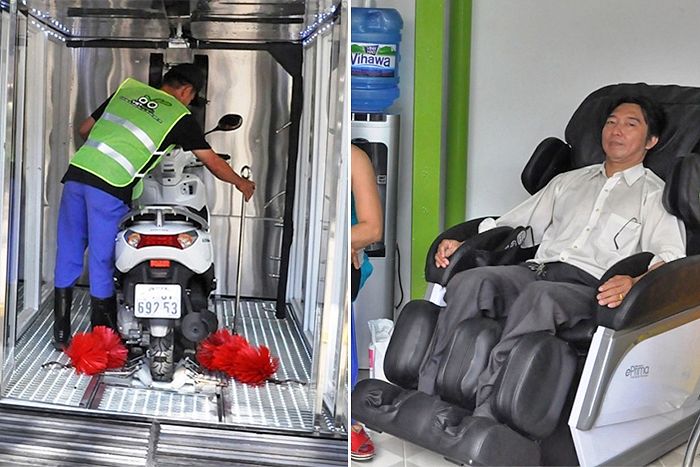They say you are what you eat. If this is true, Saigon is in the midst of an identity crisis.
Over the last few months, Saigon officials have been battling with how best to handle the city's myriad food safety problems. Now, as consumers continue to express concern over the lack of available information on safe selling points for local produce, reports Tuoi Tre, some local lawmakers are becoming equally frustrated by the inaction of city officials in dealing with this issue.
“Ho Chi Minh City has failed when it comes to state management in the food safety area in the past time,” Vo Van Sen, a deputy from Go Vap District, told the news outlet.
“I think this is the weakest point and the biggest flop of the Ho Chi Minh City administration,” he continued.
For evidence of unsafe food, Saigon residents need look no further than the city's street food vendors. In a recent Thanh Nien article, some of these local vendors spoke frankly about their suppliers and ingredients, and the responses were far from comforting.
“I don’t know where the meat really comes from, but I’ve been selling well so I just keep buying,” one District 5 bánh mì vendor told Thanh Nien. At half the local market price, the vendor did not find an issue with purchasing low-quality meat, arguing that street food is not a luxury and so patrons can't expect high-quality ingredients to come at such low prices.
Moreover, she pointed out, most of her street food clients are blue-collar workers who don't have the privilege of being picky about the ingredients in their meals.
In relation to street food, health concerns have arisen regarding several flavor-enhancing artifical substances used in such dishes, which a recent report from the city's health department suggested may contain cancer-causing heavy metals. That said, most regular street food diners believe it's better to not think about the dangers of unclean produce. “You need to stop thinking if it's safe or if [street food] will cause you diarrhea,” one patron, Hiep, told Thanh Nien. “Then you will be able swallow it.”
Off the street, too, there are problems. Many local consumers also worry about the quality and origin of produce sold at local markets and supermarket chains. At an ongoing meeting of the 20th People’s Council of Ho Chi Minh City, an unnamed representative of the city's Plant Protection Agency announced that his department had tested 1,000 produce samples collected at local farms, only eight of which failed to meet safety standards. The agency also analyzed 700 produce samples from local supermarkets and ended up with the same number of unsafe items. While these results are optimistic, many consumers remain uneasy.
In an effort to help assuage customer fears, Department of Trade Deputy Director Nguyen Ngoc Hoa recently named 246 safe selling points for meat and produce across the city, reports VietnamNet. The vendors listed are supplied by three major companies – Vietnam Meat Industries Co., Ltd. (Vissan), Saigon Food Processing and Animal Breeding Co. (Sagrifood) and Anh Dao General Agricultural Service Cooperative from Dalat – whose produce meets Vietnamese Good Agricultural Practice (VietGAP) standards.
While this is a step in the right direction, VietGAP standards are not necessarily a vote of confidence when it comes to food safety. Reports of minimal supervision, high costs and rules which are unclear to Vietnamese public have plagued the Vietnamese produce standard since its inception, calling into question the validity of the system.
Still, government officials seem to recognize the severity of the situation and are keen to begin solving some of Saigon's food safety issues. During a municipal government meeting, Deputy Tran Ngoc Hung pushed for government assistance to those responsible for supplying Saigon with food, acknowledging the circumstances which might encourage local farmers to cut corners or use harmful chemicals on their produce.
“Producing safe food certainly requires higher production cost and yields lower output,” he told Tuoi Tre. “So, farmers producing safe food will be unable to compete in the market without legal and financial support from the government.”














